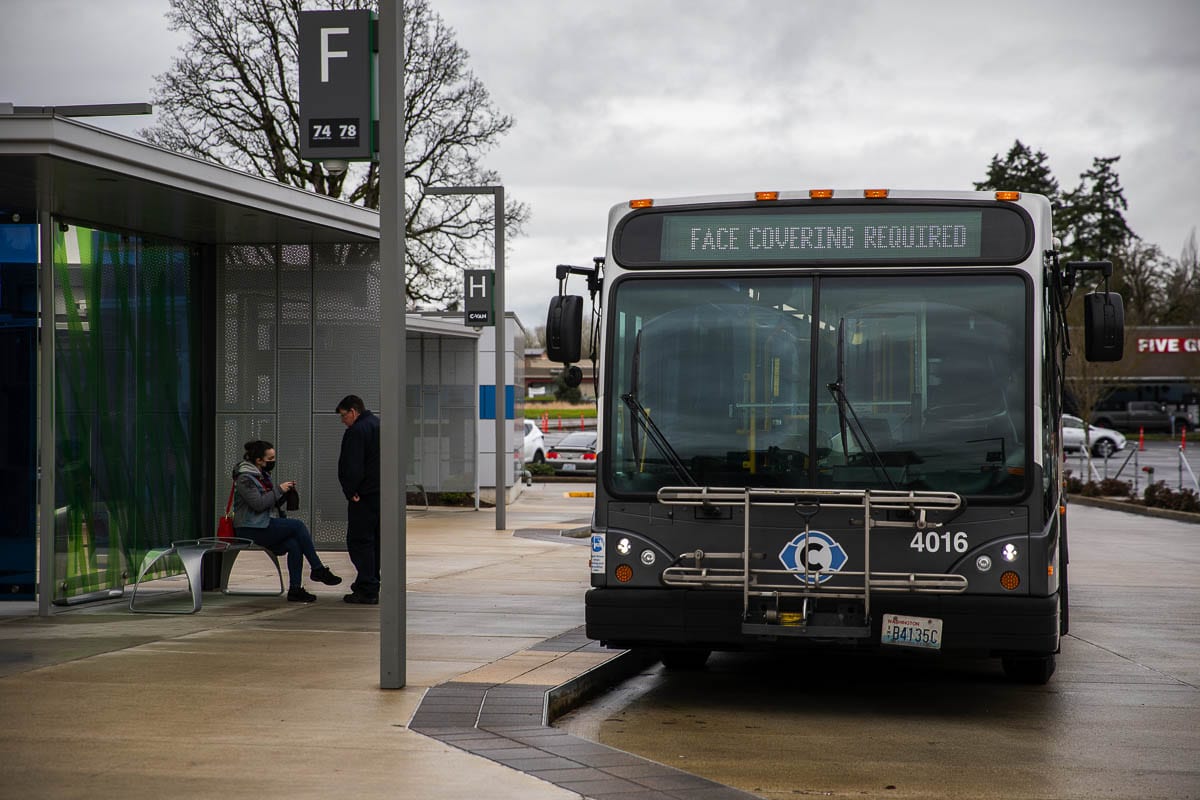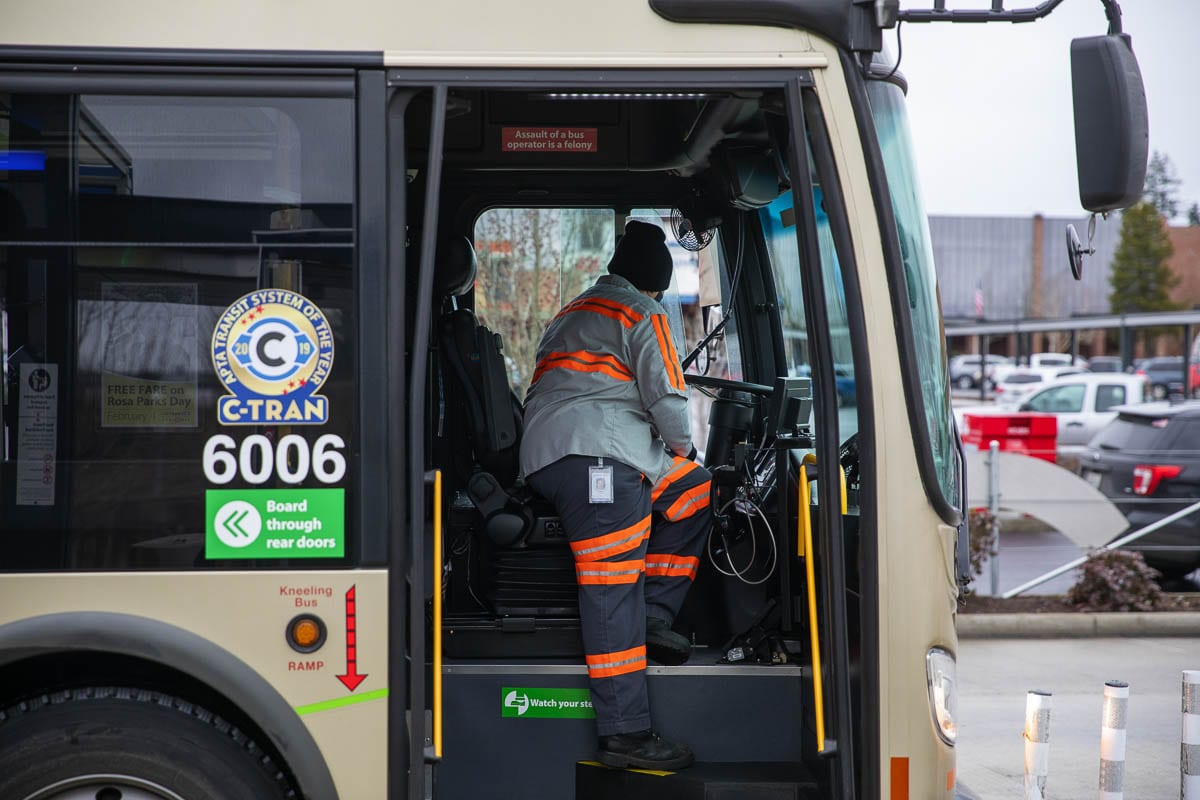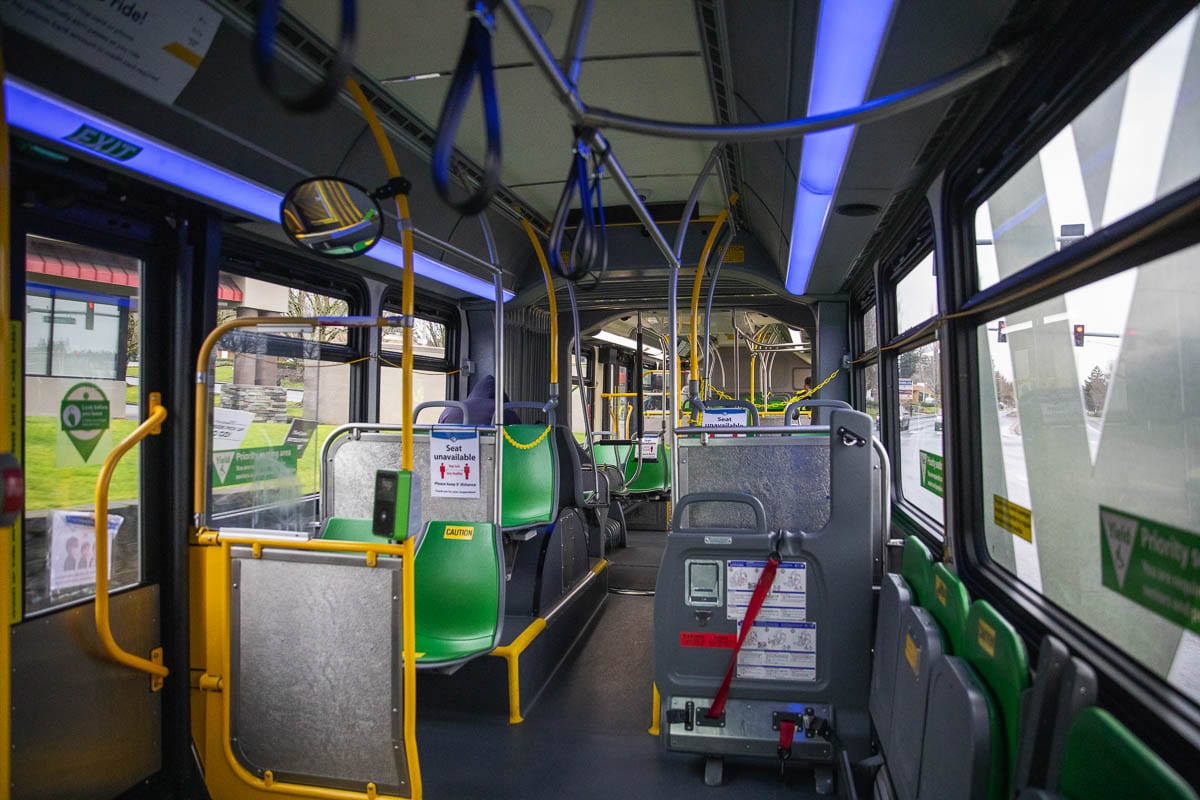The transit organization has successfully remained open throughout pandemic
CLARK COUNTY — Transit organization C-TRAN has been able to remain open throughout the entirety of the pandemic thanks to its intense cleaning regiment on all its bus lines.
Early on in the pandemic, the organization expanded their already existing cleaning crews which disinfect buses at-large stop points, and also remove trash. Initially fares were waived for the first few months to reduce interaction with the driver. All routes are now taking fares again with upgraded safety precautions, including enclosures for drivers.

“It’s always been a point of pride with us to keep our vehicles as clean as possible,” said C-TRAN Director of Communication and Customer Experience, Christine Selk. “But with COVID we stepped it up even more. Every bus is cleaned every night, the entire operator area is sanitized with antibacterial sprays and wipes. We use hydrostatic sprayers on all of the vehicles so that every single inch of the interior of the bus is sanitized.”
Each bus also is scheduled to undergo periodic deep cleaning, similar to car detailing. Fleet maintenance, operations and administrative employees are also all wearing face covering at the office, which itself is thoroughly cleaned, Selk said.

“With very limited exceptions, we have kept our service levels the same throughout the duration of the pandemic,” Selk said. “We temporarily reduced commuter service on a couple of our express routes, but that really is the only exception. Because obviously, people are working from home, and we have fewer folks coming from Clark County into downtown Portland.”
The drivers are protected by their plexiglass barriers, and on larger buses like The VINE, riders board and disembark from other doors than the front when possible. Riders are also spaced out for physical distancing, and multiple seats are marked off to ensure compliance.
“C-TRAN has made it pretty easy by installing the barriers, giving us lots of PPE and trying to protect us,” said bus driver Doug Anderson. “I think they’ve done a really good job with that. We do have our concerns, of course, I mean, you’re still in proximity to people, but I think for the most part the company’s done a good job with what they can do.”

Similar to all other transit agencies across the nation, C-TRAN has experienced a decrease in ridership, however, the decrease in Clark County has been the lowest in the state of Washington, Selk said.
The downturn’s relative size in the state is seen by the organization as evidence of the need that C-TRAN fills for many citizens in Clark County, Selk said. Moving into the future, C-TRAN will be maintaining high levels of cleaning and sanitation on all it’s buses, as well as following the most recent CDC guidelines.
“We’ve learned the value of flexibility,” she said. “This is something that all of us, obviously not just C-TRAN, and not just public transit, everyone has had to rethink the way that they go about work. I think that the businesses, and the agencies and the people who’ve been able to kind of go with the flow and respond quickly to the changes are probably seeing a lot of success and that ability to keep moving and keep going.”




